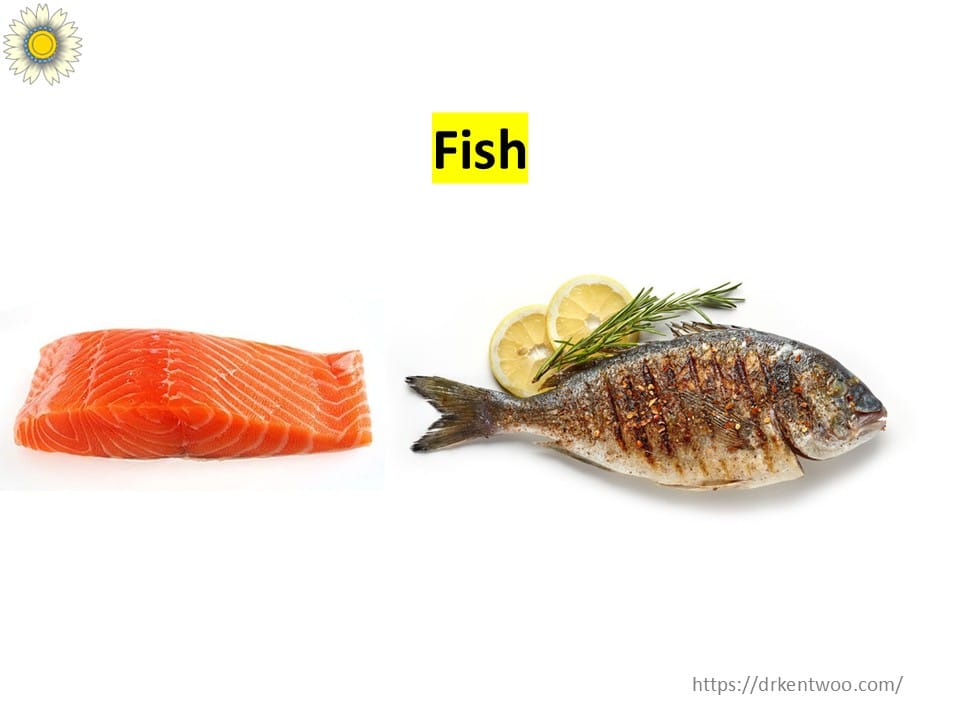Fish Allergy: Causes, Symptoms, and Management

A fish allergy is different from a shellfish allergy and is caused by an immune reaction to proteins found in finned fish, such as salmon, tuna, and cod. A fish allergy can cause mild to severe symptoms, including anaphylaxis. Unlike some food allergies that children may outgrow, fish allergies are usually lifelong.
What is a Fish Allergy?
Fish allergies are triggered by proteins such as parvalbumin, which is found in the muscle tissue of most fish. Cooking does not destroy these proteins, meaning cooked fish can be just as allergenic as raw fish. Fish allergens can also become airborne when fish is cooked, which may trigger reactions in highly sensitive individuals.
Types of Fish to Avoid
If you have a fish allergy, you should avoid:
- Anchovy
- Bass
- Catfish
- Cod
- Eel
- Flounder
- Grouper
- Haddock
- Hake
- Halibut
- Herring
- Mahi-mahi
- Perch
- Pike
- Pollock
- Salmon
- Sardine
- Snapper
- Sole
- Swordfish
- Tilapia
- Trout
- Tuna
- Whitefish
Cross-Reactivity Between Fish
Many individuals with a fish allergy react to multiple types of fish due to parvalbumin cross-reactivity. This means that if you are allergic to salmon, you may also react to tuna, cod, or other finned fish. However, some people tolerate certain fish while being allergic to others. Allergy testing can help determine individual sensitivity.
Did you know that if you are fish allergic, you can react to crocodile meat?
Important note: Fish and shellfish are biologically distinct. Being allergic to fish does not necessarily mean you are allergic to shellfish (shrimp, crab, lobster).
Hidden Sources of Fish (May Contain Fish Allergens)
- Fish sauce (commonly used in Asian cuisine)
- Worcestershire sauce (may contain anchovies)
- Caesar salad dressing (may contain anchovies)
- Imitation crab meat (surimi)
- Omega-3 supplements (derived from fish oil)
- Gelatin and Collagen supplements (sometimes sourced from fish bones/skin)
- Bouillabaisse (French fish stew)
- Soy sauce (some varieties contain fish extract)
- Certain fried foods (may be cross-contaminated in shared fryers)
Managing a Fish Allergy
- Read food labels carefully. Many processed foods contain hidden fish-derived ingredients.
- Be cautious when dining out. Avoid seafood restaurants, where cross-contact is common.
- Avoid airborne exposure. Cooking fish releases allergenic proteins, which can trigger reactions.
- Carry an epinephrine auto-injector (EpiPen). In case of severe reactions, always have emergency medication.
- Consult an Allergist/Immunologist. Allergy testing can help determine which specific fish you must avoid.
FAQ: Fish Allergy
1. Can I be allergic to one type of fish but not others?
Yes, but cross-reactivity is common. Many people allergic to one type of fish react to multiple species due to shared proteins. An Allergist/Immunologist can help determine which fish are safe.
2. Can I eat shellfish if I have a fish allergy?
Yes! Fish and shellfish are different. Being allergic to finned fish (e.g., salmon, tuna) does not mean you are allergic to shellfish (e.g., shrimp, crab, lobster). However, cross-contamination is a concern.
3. Is fish oil safe for someone with a fish allergy?
Not always. Some highly refined fish oils may be safe, but contamination is possible. Check with your Allergist/Immunologist before taking fish oil supplements.
4. Can fish allergies develop in adulthood?
Yes. Many people develop fish allergies later in life, and they are often lifelong.
5. Can I have a reaction from inhaling fish fumes?
Yes. Cooking fish can release allergenic proteins into the air, which may cause reactions in highly sensitive individuals. Avoid seafood restaurants or cooking areas if you are at risk.
6. What should I do if I accidentally eat fish?
- Mild symptoms (hives, stomach pain): Take an antihistamine.
- Severe symptoms (anaphylaxis): Use an EpiPen immediately and seek emergency medical help.
Conclusion
Fish allergy is a serious condition that requires strict avoidance of all finned fish. Because of high cross-reactivity, allergists often recommend avoiding all fish unless testing confirms that certain types are safe. With careful management and the right precautions, individuals with fish allergies can live safely and confidently.
The Allergy Immunology Clinic is here to help you with your food allergy.




